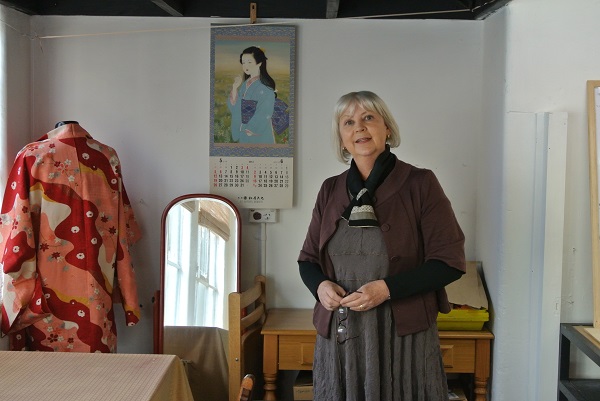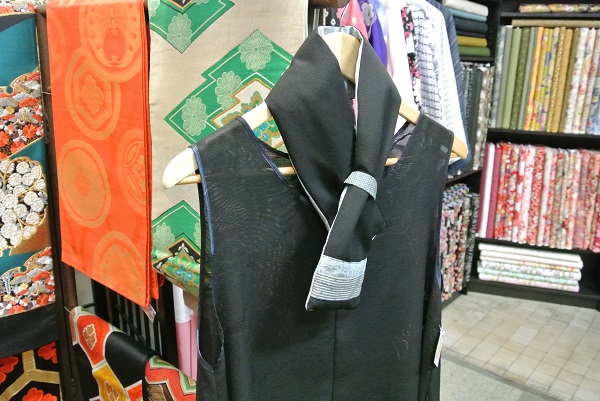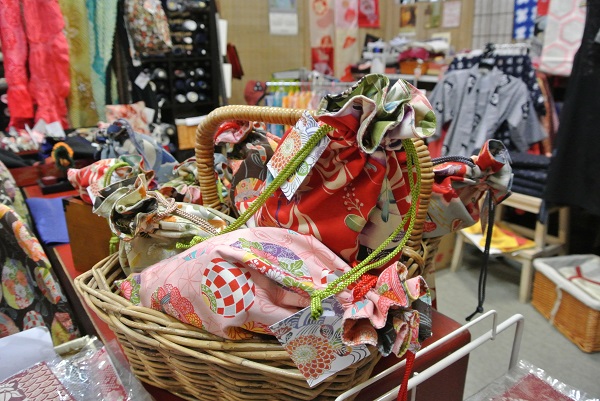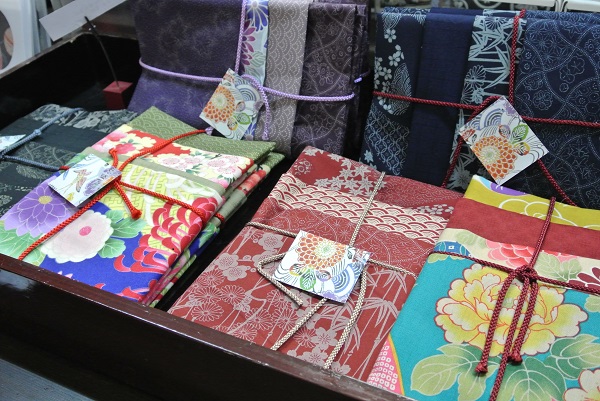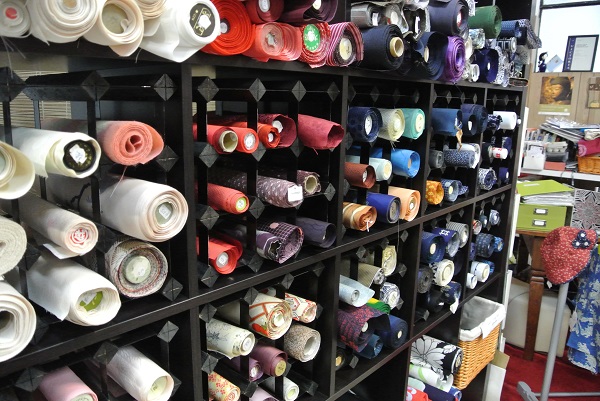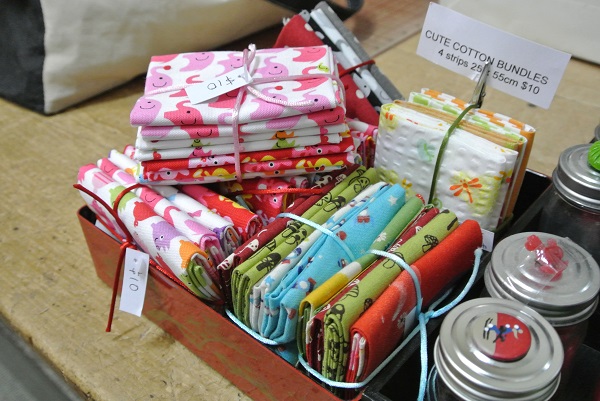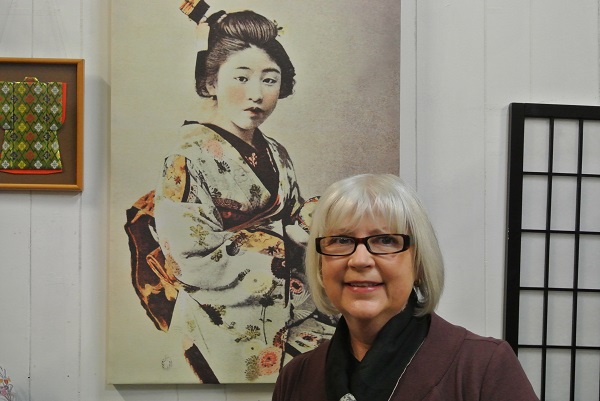Leanne O’ Sullivan is the founder of Kimono House whose love of Japan began early. “As a child I read a book about a Japanese character. I was a little girl and thought it was so exotic,” she says.
The relationship blossomed over time. Five years living in Japan gave her the opportunity to explore kimono culture and led to a fascination with Japanese fabric, and a business idea. It would be a mistake to think Kimono House – a destination for Japanese textiles, craft and cultural classes – is purely a commercial venture. Rather, it’s Leanne’s way of sharing a tiny piece of Japan, in Melbourne.
After bumping along hectic Swanston Street and not far from Flinders Street station, you’ll find the Nicholas Building, home of Kimono House. The eighty year-old, grand architectural dame is a reminder of Melbourne’s once thriving rag trade. Enter, and into the rabbit hole you go to an art and craft wonderland. It’s an enchanting labyrinth filled with artists, jewellers, vintage shops, and craft suppliers.
It suited Leanne to be amongst other creative types, and the location meant she could replicate the shopping experience of a Japanese city like Kyoto. “In Japan, treasures are often discovered walking up those stairs or down those lane-ways, or going into a shop that doesn’t have any signage,” she explains.
Kimono House sells Japanese vintage and contemporary fabrics, fashion accessories, handbags and a host of other items. The delightful craft kits have been put together by Leanne. She throughly tested each one after writing the instructions. Also available are small number of vintage but unused kimonos.
The store, on the second floor, is an alluring fusion of colours and textures. “Customers walk in and often go, ‘Wow’,” says Leanne. Surrounded by a smorgasbord of Japanese textiles, it’s hard to resist touching the beautiful material and picking up the products on display.
The years spent in Japan helped Leanne deepen her understanding of Japanese culture and form bonds with suppliers – not an easy thing for a Westerner to do. She regularly travels to source material and deal with manufacturers.
Leanne says that the best fabric is needed for a beautiful kimono. “Unlike Western fashion where designers tailor the outline of clothing, the shape of a kimono is timeless, so it’s all about the fabric. Wool is used for winter, cotton for summer and silk fabric used to make kimonos for formal occasions,” she says. A superior fabric is vital; in centuries gone-by weaving, dyeing and embellishment techniques imported from other parts of Asia were perfected to create more beautiful and higher quality textiles. “Japanese fabric not only looks wonderful, it feels beautiful,” Leanne says.
Kimono House also runs craft workshops and cultural classes. They provide an authentic cultural experience and sharing of traditional craft techniques. The winter program goes till September and includes: Japanese woodblock printing, Japanese patchwork quilting, Sashiko (Japanese textile embellishment), hand stitching felt Temari balls, Shibori (traditional indigo dyeing) and Ikebana (Japanese flower arranging).
Japanese tea is served in the classes and a Japanese lunch included in day-long workshops. “There may even be traditional music playing that’s meditative, depending upon what you’re doing,” says Leanne. “You don’t need to go outside into the chaos. You can be fully immersed in a Japanese experience for the day”.
Kimono House has programs for high school students. Leanne’s cultural workshops also formed part of the activities associated with Bendigo Art Gallery’s Japanese Exhibition earlier in 2013.
So, after all these years, what’s kept Leanne’s love of Japan going?
“Even now, I’m amazed by the contrasts: the beauty; the quirky, crazy things … the history. It mixes so well,” she says, as if she’s talking about a life-long friend.
Kimono House
Room 7, 2nd Floor, Nicholas Building. 37 Swanston Street, Melbourne, VICTORIA 3000
Phone: 03 9639 0565
Website: www.kimonohouse.com.au
Wednesday to Friday: 10 am – 5 pm. Saturday: 11am – 4 pm.
Story and photos: Peter Dewar



